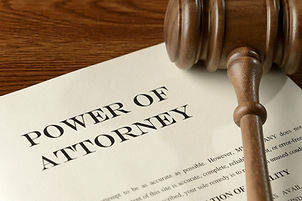Estate Planning
Living Documents
Important living documents to have include:
1. Power of Attorney
2. Health Care Representative
3. Living Will


Last Will and Testament
What is a Last Will and Testament?
A Last Will and Testament allows you to control what happens to your estate after your death. In your will, you can define assets, name beneficiaries, assign guardians for your children and appoint an executor.
When should I use a Last Will and Testament?
-
You have assets, money or property you want to be distributed to individuals or organizations after your death.
-
You need to appoint a guardian to care for your minor children if you and the other parent cannot.
-
You need to appoint an executor to carry out the provisions of your Will.
-
You need to appoint a caregiver and set aside funds for caring for your companion animals
Revocable Living Trust
What is a Revocable Living Trust?
A Revocable Living Trust is an effective way to handle one's estate, especially in providing clear direction on how one's assets should be disbursed (and to whom) after death.
A living trust primarily helps individuals maintain greater control over their assets and have their wishes carried after they die. A living trust can help save the expense and delay of probate, which can last as long as three years and take up to 5-6% of an individual's estate's value.
Since you don't have to register a trust with the courts, setting one up can also provide you with more privacy than a will.